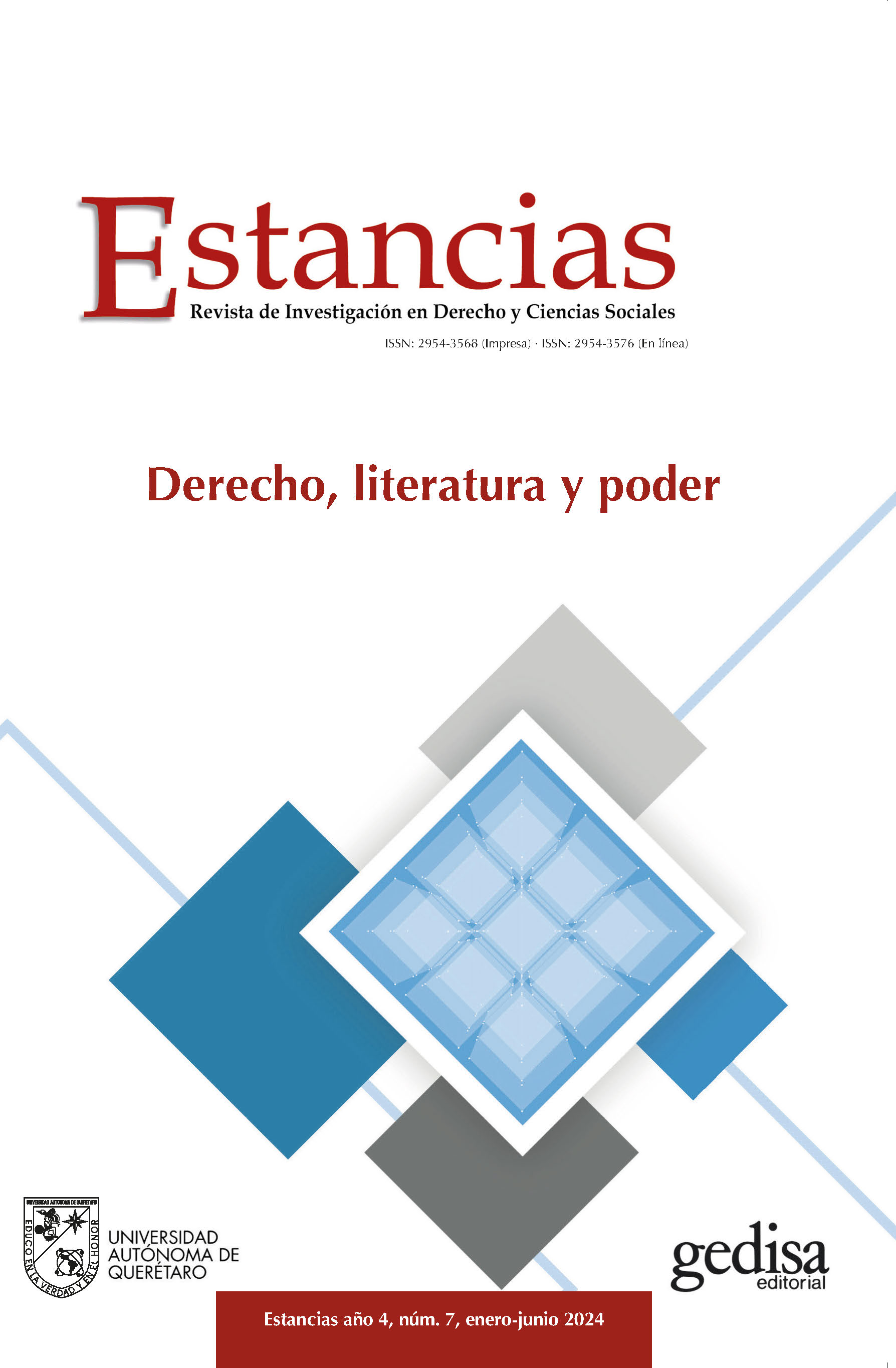José Revueltas, la actualidad del proceso penal del 68
Contenido principal del artículo
Resumen
Hasta ahora el proceso penal al que fue sometido José Revueltas a raíz del movimiento estudiantil de 1968 ha dado lugar a pocos trabajos. En el presente texto, pretendemos demostrar que estudiar y discutir este proceso es una vía particularmente pertinente para esclarecer ese momento decisivo de la historia reciente de México. En primer lugar, porque el juicio —pretendidamente penal y, en realidad, político— representó un momento de ruptura en el que célebre “legalismo” del Estado posrevolucionario se reveló, a plena luz del día, como un mero maquillaje del autoritarismo. En segundo lugar, porque su estudio permite entender mejor la posición que en aquel entonces Revueltas guardó en tanto intelectual y como persona. Finalmente, lleva a abrir la pregunta del por qué del encarnizamiento del régimen priista en contra de Revueltas. Por nuestra parte, creemos que, más allá de la naturaleza autoritaria del régimen, esta pregunta sólo puede encontrar respuesta cabal dentro de la lógica profundamente excluyente del mito del Estado revolucionario de la última centuria.
Detalles del artículo

Esta obra está bajo una licencia internacional Creative Commons Atribución-NoComercial-CompartirIgual 4.0.
Cómo citar
Referencias
Aristóteles (2020). Política. España: Gredos.
Azuela, M. (2023). Encinas. un referente de lo que no fue la 4t. El Universal, 25 de mayo.
Boudon, R. B. (1982). Dictionnaire critique de la sociologie. París: Quadrige-PUF.
Cheron, P., y A. Revueltas (1977). Conversaciones con José Revueltas. Ciudad de México: ERA.
Cossío, J. R. (2020). Biografía judicial del 68, El uso político del derecho contra el movimiento estudiantil. Ciudad de México: Debate.
Crespo, J. A. (2023). El Plan C y la dictadura perfecta. Etcétera, 12 de mayo.
Duverger, M. (1964). Un régimen remarquable par sa stabilité et son légalisme. Le Monde diplomatique.
Echevarría, N. (2006). Andrea Revueltas de la serie de testimonio memorial del 68, 21 de agosto. Disponible en: https://m68.mx/coleccion/5892
Fuentes, C. (1971). Tiempo mexicano. Ciudad de México: Joaquín Mortiz.
Krauze, E. (2002). La Presidencia imperial. Ciudad de México: Tusquets.
Krauze, E. (2008). Las memorias de Díaz Ordaz. Reforma, 5 de octubre.
La matanza de Tlatelolco (2023), 21 de abril. Disponible en: https://www.cndh.org.mx/noticia/matanza-de-tlatelolco
m68. (s/f). Disponible en https://m68.mx/coleccion/430
Makhaîski, J. W. (1979). Le socialisme des intellectuels. París: Seuil.
Monter, H. P. (2005). La última captura de José Revueltas. Archivos.gob.mx. disponible en: https://bagn.archivos.gob.mx/index.php/legajos/article/view/793/765
Proudhon, P.-J. (1875). Correspondance de P.-J. Proudhon. París: A. Lacroix et Cie.
Redacción (2021). La 4t es una consecuencia del 68, Eje Central, 2 de octubre.
Revueltas, A. (s/f). En el Filo. Ciudad de México: UNAM.
Revueltas, A., y P. Cheron (1998). José Revueltas y el 68. Ciudad de México: UNAM.
Revueltas, J. C. (2021). Hans Blumenberg, una concepción retórica de la política. Andamios. Revista de Investigación Social, 18 (45).
Salinas, A. (2018). Díaz Ordas estaba en la nómina de la CIA: Sergio Aguayo. El Universal, 12 de septiembre.
Scherer García, J., C. Monsiváis (1999). Parte de Guerra, Tlatelolco 1968. Ciudad de México: Nuevo Siglo Aguilar.
semarnat.gob.mx. (2023). Disponible en: apps1.semarnat.gob.mx
Velásquez García, E., E. Nalda, P. Escalante et al. (2010). Nueva historia general de México. Ciudad de México: El Colegio de México.
Xantomila, J. (2021). Comité 68 propone fiscalía especial para crímenes de lesa humanidad contra el pueblo. La Jornada, 01 de octubre.
